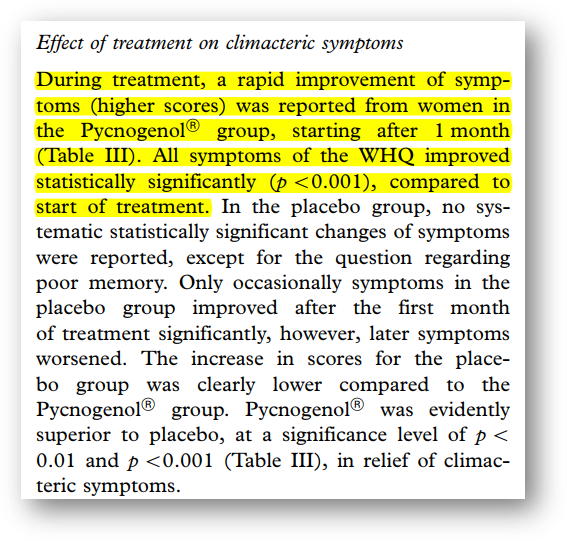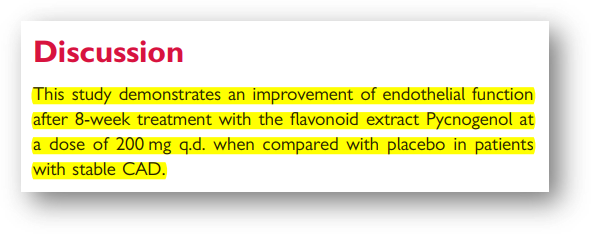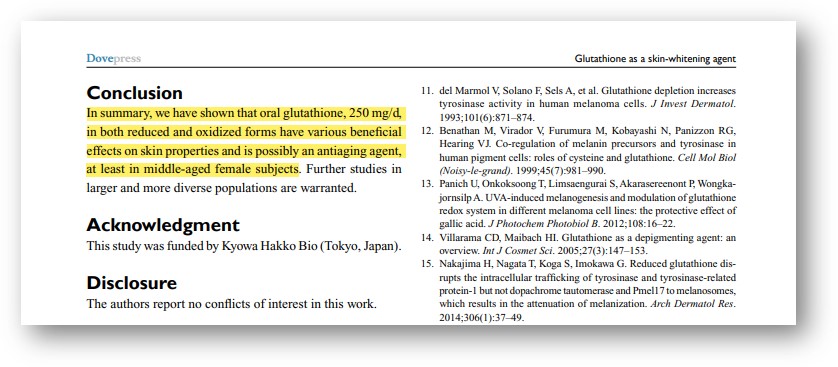
Hello. I'm a pharmacist Jinny.
Today, I'd like to introduce you to an ingredient called pycnogenol. It is an unfamiliar ingredient to many people, but if there is ginseng in Korea, it can be said that there is pycnogenol in the West, so it is already a highly recognized ingredient overseas. Pycnogenol is extracted from the bark of pine trees on the southwest coast of France and contains a variety of flavonoids, including procyanidins, which are known to inhibit oxidation in the body. The Food and Drug Administration has also recognized Pycnogenol's ability to "scavenge free radicals, inhibit platelet aggregation, and support menopausal women's health."
Now, let's take a look at the benefits of taking pycnogenol in this article.
Pycnogenol stimulates the synthesis of endothelial nitric oxide synthase (eNOS), which lowers blood pressure, improves cerebral microcirculation, and increases neurotransmitter production. These positive effects on the vascular system and nervous system are also known to improve menopausal symptoms.
In this regard, a study published in Acta obstetricia et gynecologica Scandinavica in 2007 showed that in a study of menopausal women who suffered from discomfort such as fatigue, headaches, and anxiety, pycnogenol improved menopausal symptoms [1].

"During the treatment period, women in the pycnogenol group reported rapid improvement in symptoms (high score) after 1 month. All symptoms on the WHQ (questionnaire to ask about menopausal symptoms and discomfort) showed statistically significant improvement compared to the start of treatment."
The vascular endothelium is an epithelial tissue that touches the lumen of the blood vessel, and it normally keeps the blood flowing by preventing blood clots from forming, but when a wound occurs in the blood vessel, it triggers the coagulation process. It also acts as an immune surveillance system that recognizes pathogens and foreign substances circulating in the blood. Pycnogenol activates endothelial nitric oxide synthase (eNOS), which facilitates blood flow through vasodilation and promotes the production of NO (nitric oxide), which lowers blood pressure. Therefore, when Pycnogenol is consumed, the function of the endothelial cells of the blood vessels is improved.
In this regard, a 2012 study in the European Heart Journal showed that pycnogenol in patients with coronary artery disease improved vascular endothelial function [2].

When endothelial cell function is impaired and the formation of NO (nitric oxide) is reduced, platelet activity increases, increasing the risk of blood clots. If a blood clot occurs in the coronary artery of the heart, a myocardial infarction occurs, and if it occurs in the brain, a cerebral thrombus occurs. It is known that the aforementioned effect of pycnogenol in promoting nitric oxide production helps to normalize platelet activity when taking pycnogenol.
In this regard, a paper published in Thrombosis research in 1999 reported the results that platelet aggregation activated by smoking was inhibited by pycnogenol intake [3].

Today, we looked at the benefits of taking pycnogenol in a paper. Pycnogenol is considered safe because it has been studied for a relatively long time. However, if you are taking antithrombotic or anticoagulant medications, you should be careful because they can increase your tendency to bleed. And if you take it on an empty stomach, it can cause a little stomach discomfort, so it is recommended to take pycnogenol after meals.
I hope you have a healthy day in body and mind. It was Jinny.
[1] Yang, H. M., Liao, M. F., Zhu, S. Y., Liao, M. N., & Rohdewald, P. (2007). A randomised, double-blind, placebo-controlled trial on the effect of Pycnogenol on the climacteric syndrome in peri-menopausal women. Acta obstetricia et gynecologica Scandinavica, 86(8), 978–985.
[2] Enseleit, F., Sudano, I., Périat, D., Winnik, S., Wolfrum, M., Flammer, A. J., Fröhlich, G. M., Kaiser, P., Hirt, A., Haile, S. R., Krasniqi, N., Matter, C. M., Uhlenhut, K., Högger, P., Neidhart, M., Lüscher, T. F., Ruschitzka, F., & Noll, G. (2012). Effects of Pycnogenol on endothelial function in patients with stable coronary artery disease: a double-blind, randomized, placebo-controlled, cross-over study. European heart journal, 33(13), 1589–1597.
[3] Pütter, M., Grotemeyer, K. H., Würthwein, G., Araghi-Niknam, M., Watson, R. R., Hosseini, S., & Rohdewald, P. (1999). Inhibition of smoking-induced platelet aggregation by aspirin and pycnogenol. Thrombosis research, 95(4), 155–161.




![[Lactobacillus Complex Benefits] 3 Benefits of Fat Bacteria](http://esther-mall.com/cdn/shop/articles/23.jpg?v=1733990692&width=480)